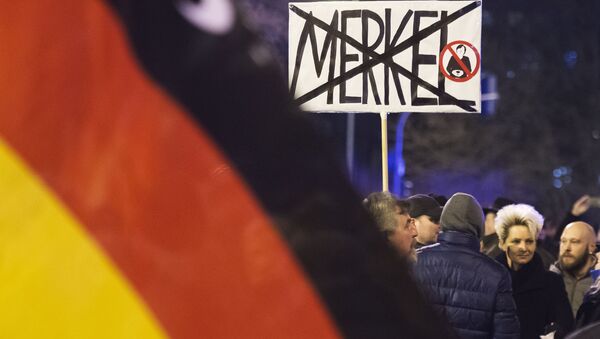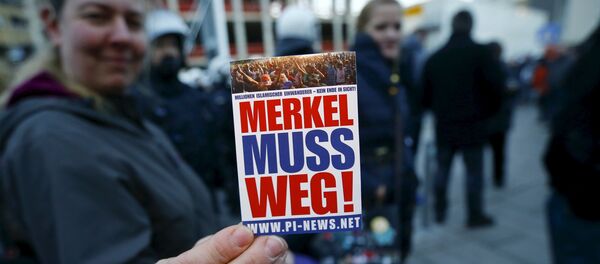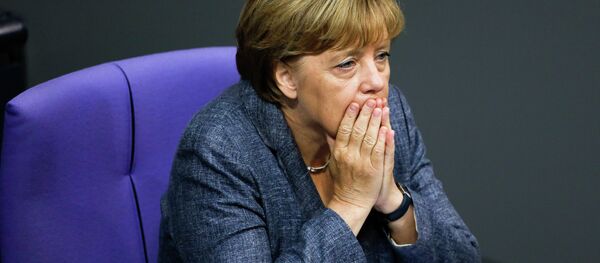The interview came after Germany's populist, anti-immigrant Alternative for Germany (AfD) party finished third in municipal elections in the country's central state of Hesse, held on March 6. According to Germany's state news outlet DW, Angela Merkel's Christian Democrats finished with 28.2 per cent of the vote, ahead of the Social Democrats with 28 per cent; Alternative for Germany obtained 13.2 per cent of the vote, beating the Green party.
The vote took place a week ahead of elections to the state legislatures of Baden-Württemberg, Rhineland-Palatinate and Saxony-Anhalt, which are scheduled for March 13. The upcoming polls will determine if Merkel is still strong or will be supplanted by a new leader.
Touching on the Hesse election's results, Patzelt said that "they will certainly bring more momentum to the Alternative for Germany party, which we expect to enter three new state parliaments with about 15 per cent of votes."
He also said that the party is almost certain to have an indirect influence on Germany's policy-making in the near future.
"With the AfD's possible entry into the three more state legislatures, Chancellor Merkel will be in a difficult position in her own political party because losing votes is really dangerous for Christian Democrats. This, in turn, will be fraught with consequences for Merkel's standing in Europe," Patzelt said.
Meanwhile, it has been reported that the Alternative for Germany party is also polling strongly in the run-up to the three key state elections; in some municipalities it claims more than 20 percent-voter support.
Merkel recently condemned the Alternative for Germany's rhetoric, saying that it inflames prejudice and polarizes society.
Merkel has repeatedly been slammed for her open doors policy as the growing influx of refugees raised security concerns among the local population.
However, despite opposition from the residents and a number of German politicians, Merkel has refused to close the country's borders and set a limit on the number of newcomers.




